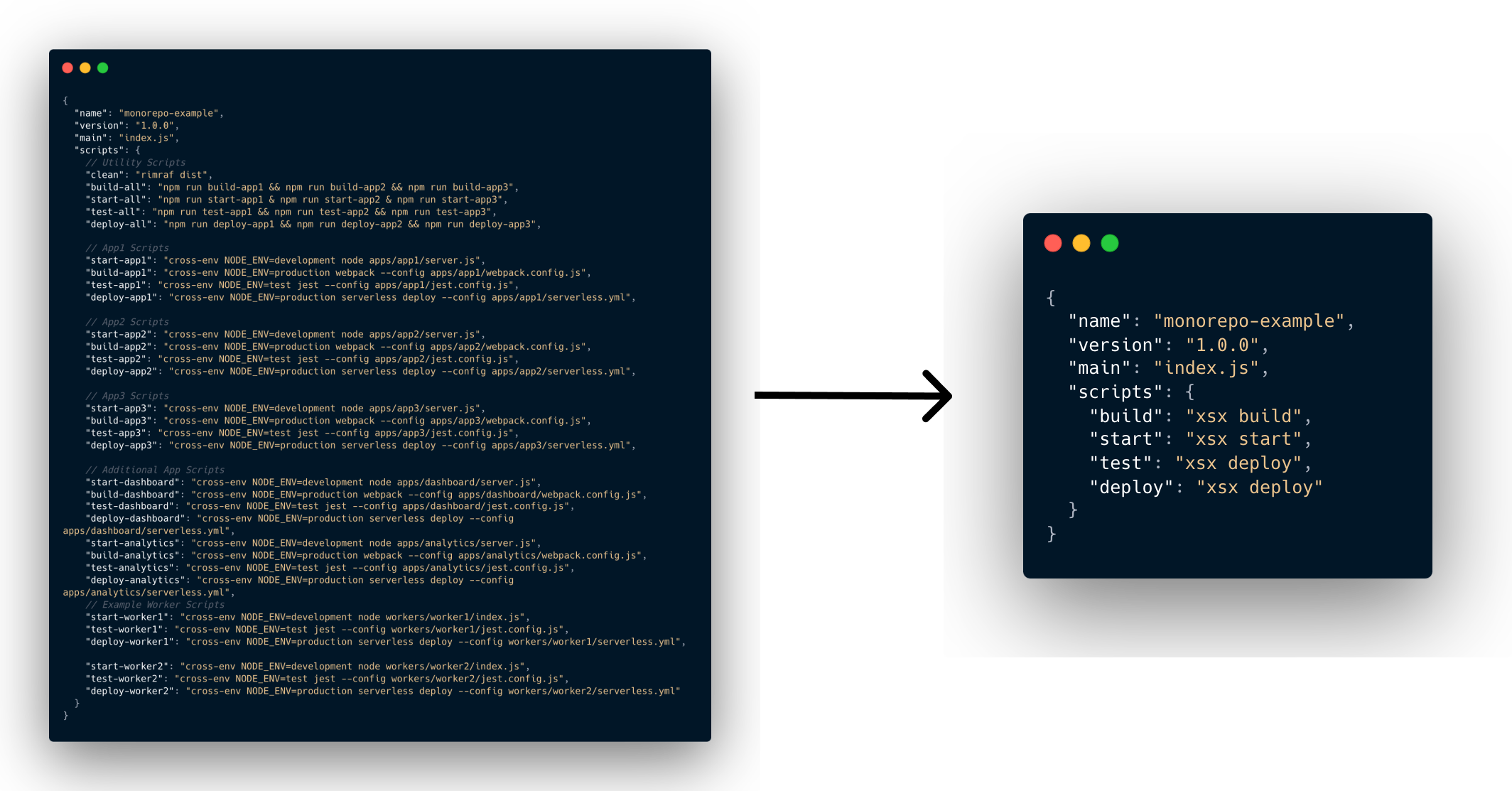@qudo/xsx
v0.0.2
Published
Organize and scale your package.json scripts natively.
Downloads
4
Readme
XSX
npm i -D @qudo/xsx
Organize and scale your package.json scripts natively without janky pre-install steps and JSON partials.

Motivation
In large projects, it's common to have a lot of scripts in your package.json which starts to get messy. Most solutions to this problem include pre-install steps that allow you to create package.json partials and include them into your main package.json. This isn't really how things work by default and it feels a little weird to be piecing together at install time what should already be the source of truth.
Usage
XSX solves the script organization problem with tools you already have and conventions you already follow. Simply make a ./scripts folder with *.sh files and XSX will help you resolve them in your package.json.
Add Scripts
Create a ./scripts folder with *.sh structured however you want. These scripts will be like your package.json scripts, except now you have folders to better organize them and IDE features like syntax highlighting and autocomplete.
Example
/scripts
/build
backend.sh
dashboard.sh
docs.sh
website.sh
/dev
/backend
api.sh
database.sh
/website.sh
package.jsonRun Scripts
Run scripts by invoking the xsx command and separating the scripts directory segments with spaces.
Example
If you have a script located at ./scripts/build/website.sh you can run it in your package.json with xsx build website.
It might also be helpful to setup partial xsx scripts that point to common script directories like the following. This would allow you to do npm run build website or npm run dev backend api assuming the file structure in the first step.
"devDependencies": {
"@qudo/xsx": "latest"
},
"scripts": {
"build": "xsx build",
"dev": "xsx dev",
}